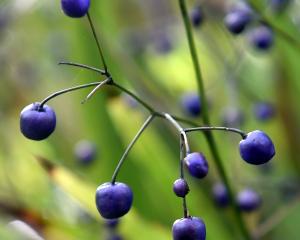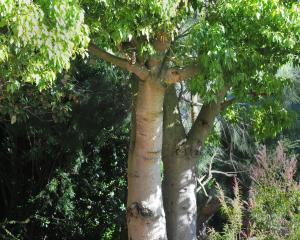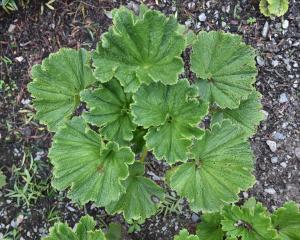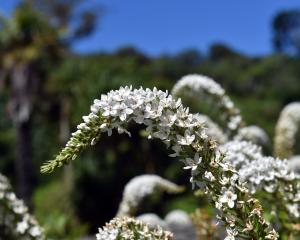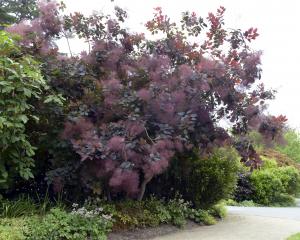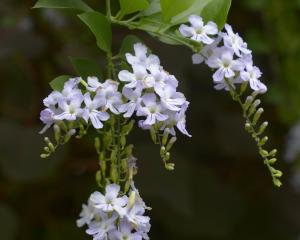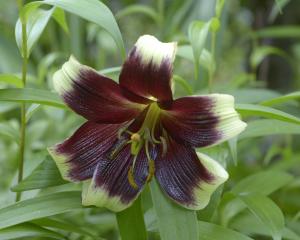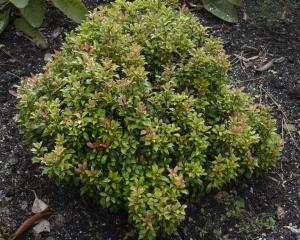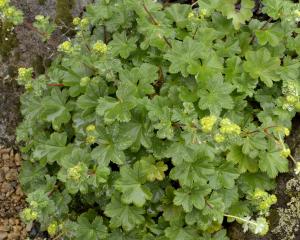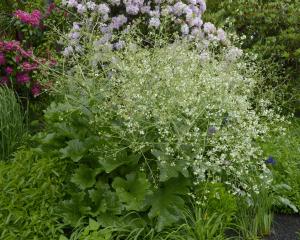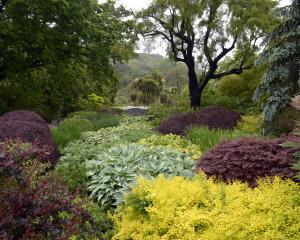The enormous leaves of "tractor seat" ligularia are perfectly reminiscent of an old-fashioned tractor seat, amply proportioned and curved for the comfort of your average farmer's posterior.
It is easily sourced in New Zealand, commonly sold as Ligularia reniformis. This is an old name, and it may also be known by its correct name Cremanthodium reniforme.
Semi-hardy, it performs well in sun or partial shade in moist, well-drained soil. Regular mulching and conservation of natural mulches such as autumn leaves conserves soil moisture during dry seasons. It is worth protecting the beautiful foliage from slugs and snails.
The evergreen foliage grows in a clump up to about 70cm to 1m tall and wide.
Each leaf is a glossy deep green, up to 45cm across, held horizontally in mid-air like floating lily pads.
In brighter conditions, the leaves can become thick and leathery, while in deeper shade the leaves grow even larger and thinner.
This adaptation to light levels is common among herbaceous plants and can be used to advantage in shady conditions where foliage is the most effective feature of a plant.
Even though flowering can be reduced by lower light levels, the bigger foliage of many plants compensates.
In summer, clusters of bright orange-yellow daisy-like flowers appear above the foliage.
A drift of Ligularia reniformis is performing well in the dry zone of an evergreen holm oak tree in the lower Botanic Garden camellia collection, on the main drive.
- Marianne Groothuis is curator of the camellia collection at the Dunedin Botanic Garden.

